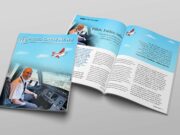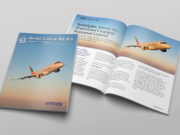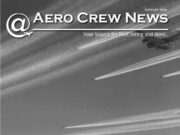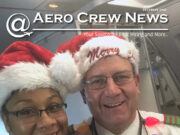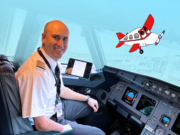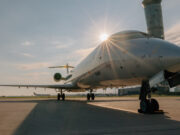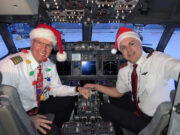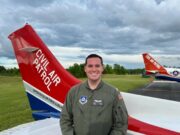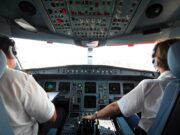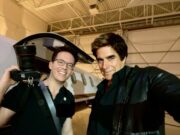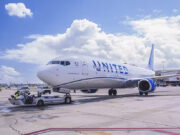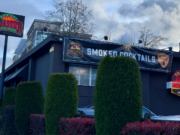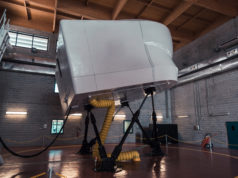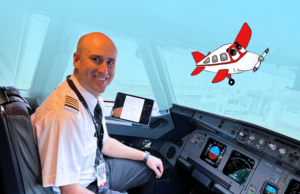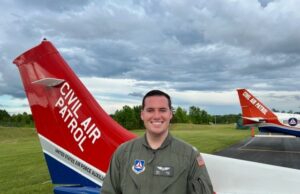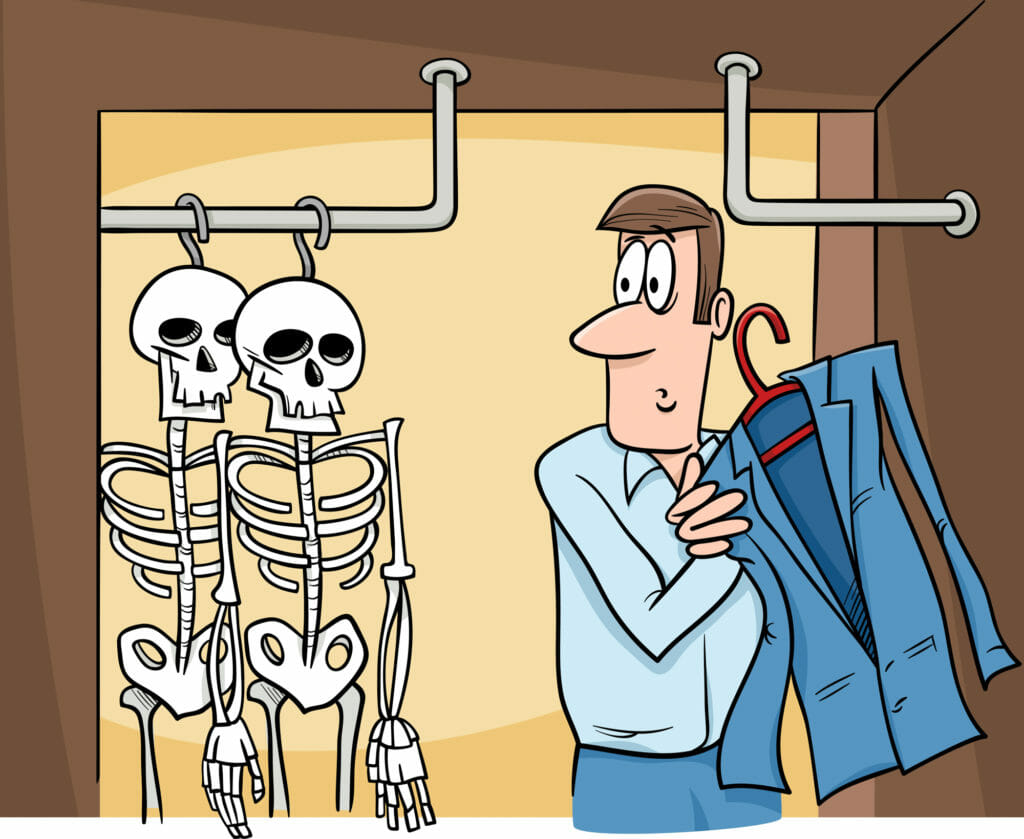 One of the scariest parts about applying for an airline job are those probing questions that you would rather not answer because you’re afraid the response you provide will sink your chances of getting hired. Hopefully, this article will alleviate your fears because the reality is, most of these concerns exist only in your head. There are very few issues that are truly showstoppers with respect to getting hired by the airlines as long as you’re honest and upfront on your application. I will also teach you a technique for minimizing the impact of confessing your sins on the application. After reading this, hopefully you will sleep better at night knowing that your future as an airline pilot is still secure.
One of the scariest parts about applying for an airline job are those probing questions that you would rather not answer because you’re afraid the response you provide will sink your chances of getting hired. Hopefully, this article will alleviate your fears because the reality is, most of these concerns exist only in your head. There are very few issues that are truly showstoppers with respect to getting hired by the airlines as long as you’re honest and upfront on your application. I will also teach you a technique for minimizing the impact of confessing your sins on the application. After reading this, hopefully you will sleep better at night knowing that your future as an airline pilot is still secure.
We all have them — things in our past that we are not that proud of. The application is going to ask about some of these things and there is no way around it. The key here is never lie on an airline application. Most of these pecadillos can be forgiven as long as you disclose them on your application and can tell a good story in the interview about what you learned from the experience. What will not be forgiven, and will certainly cause you to lose the job, is if they discover that you lied about something on your application or tried to hide something.
Some examples of the type of questions that will expose skeletons in the closet include:
- Any traffic violations?
- Any failed check rides?
- Have you ever been disciplined for violating a flight rule?
Again, the key here is not to lie, but also, don’t expose something unnecessarily.
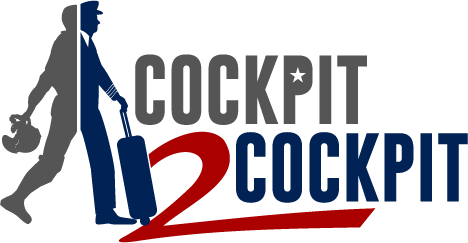
Traffic violations is a skeleton most of us have in our closet. With the exception of a DUI/DWI, most traffic violations should be no problem. Airlineapps.com, used by Delta Air Lines and United Airlines, will ask you to list any traffic infractions including any tickets or accidents. Pilotcredentials.com, used by American Airlines, FedEx, and Southwest Airlines, does not ask you to list traffic infractions but that doesn’t mean they won’t research your driving record as part of your background check.
Again, don’t sweat it too much. We were all teenagers once and therefore most of us have a few tickets and/or accidents on our driving record. This is a very forgivable sin, as long as you confess and don’t try to hide it. Even if you can’t find a ticket or accident in your driving record, go ahead and list it on your application anyway. (Varying from state to state, some records are expunged after a certain number of years, but if you know about it, list it.) You might have to estimate some of the details such as date, or name of juristiction that issued the ticket, but that’s better than not listing it and having it show up on your background check.
Probably the most common skeleton in the closet for pilots is a check ride failure. You might be under the mistaken impression that a failed check ride will automatically eliminate your chances of getting hired. A couple of check ride failures are not that uncommon in a pilot’s aviation career. Especially if they happened earlier in your career when you had less airmanship/experience. The airlines know that and generally speaking, they’re willing to give you the benefit of the doubt.
If you answer, yes to a check ride failure question on your application, the application should give you a place to explain the details of your failure. The key here is to take responsibility regardless of what you perceive caused the check ride failure. What you don’t want to do is blame your failure on someone or something else. A comment such as, “My check pilot had a reputation as being hard on new pilots in the squadron,” or, “The check pilot said I went below MDA but that’s because the needle on my altimeter got stuck,” is a sure way to eliminate your chances of getting an interview.
Here is an example where you might be able to avoid answering yes to a check ride failure question and still keep a clean conscience. On the question of check ride failures, I had originally answered yes on my applications because I had failed my multi-engine stage-check rating at Embry-Riddle Aeronautical University (ERAU) early in my aviation education. I just assumed that counted as a check ride failure. Then I attended a job fair a few months later and sat in on a presentation given by the director of pilot hiring from human resources at an airline that I was targeting. He asked if anyone had any questions about the application, and so I asked if my stage-check failure constituted a check ride failure. His answer surprised me. He said that ERAU is a Part 141 school; therefore, as long as I did not receive a “pink slip,” (FAA paperwork documenting a check ride failure) I did not need to answer yes on the check ride failure question on the application.
Similarly, most military pilots don’t get through Undergraduate Pilot Training (UPT) unscathed. In Air Force pilot training, there are between seven and nine phase-check rides in the program depending on which syllabus or track you choose. It is quite common for student-pilots to fail one or more of those check rides. Some airline applications want you to answer yes on the check ride failure question with respect to UPT phase-checks, and others will tell you to only include it if the check ride occurred after UPT and is part of your permanent flying record (in the Air Force, we call that a Form 8 evaluation). The bottom line is to play it conservatively. Either answer yes, or call or e-mail the HR department and ask the question if there is any doubt — but definitely do not lie.
So, what do you do about the “skeleton in the closet” questions that have you dead to rights, and you’re forced to answer yes to avoid lying on your application? Well, there is a certain art form to confessing your sins on an application. I call it “turning a negative into a positive.” If you answer yes to these questions, the website will usually ask you to explain the circumstances by allowing you to write a narrative about the event. In the check ride failure example above, the website will probably direct you to list the date and type of check ride failure —but don’t stop there. Make sure you tell your side of the story and spin it into a positive. For instance, here is the response I provided for my multiengine check ride failure at ERAU (before I knew I could answer no to this question):
Multiengine End of Course stage check (Part 141), Embry-Riddle Aeronautical University, May 1994. I have since earned my FAA multiengine certification (and multiengine instructor) and passed every FAA and military check ride attempted (30+ successful check rides)
That sounds like a pretty impressive accomplishment instead of a single failure, doesn’t it? OK, now you try it on your skeleton question. See, not all that difficult, is it? I credit my wife, who is a public-relations expert, with teaching me that trick.
Violating flight rules is a little more serious offense. If the application asks if you have ever been disciplined for violating a flight rule and your answer is yes, then your best bet is to throw yourself on the “mercy of the court.” Admit your sin, and then use the narrative space provided to explain how the experience turned you into a safer, more mature pilot with (hopefully) a flawless safety record since the event in question.
As you see, a lot of the things you have been stressing about or maybe have contemplated conveniently “forgetting” to list on your application, are really no big deal. The airline pilot hiring departments have seen thousands of applications and you would be shocked at some of the stories they’ve heard yet still hired the offending person. They know that no one is perfect and they are willing to overlook almost anything as long as you are honest and upfront on your application and in the interview. Being deceitful or dishonest is a sure way to lose the interview or the job — so just don’t do it!
I hope this has served its intended purpose of easing your fears and helping you sleep better at night. If you use the “turn a negative into a positive technique” you should be able to replace those skeletons in the closet with a nice new airline uniform that will bring years of prosperity to you and your family. For more helpful tips and detailed information regarding military to airline transition, visit www.cockpit2cockpit.com


